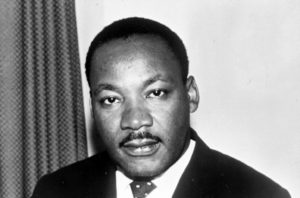Martin Luther King Jr., “Pilgrimage to Nonviolence.” A Testament of Hope: The Essential Writings and Speeches of Martin Luther King, Jr. Edited by James M. Washington (San Francisco: HarperOne, 2003), 38.
Micah 6:8
Lev 19:33-34; 25:55
Ex 21:1-11; 22:1-15; 24:1-8; Lev 19:9-10, 13, 35-37; 25:1-55; Deut 15:1-18
Ex 21:28-36; 23:1-9; Lev 19:15; Deut 19:14-20
“Justice, and only justice, you shall pursue, so that you may live and occupy the land that the Lord your God is giving you.” Deut 16:18-20; 19:1-13
Deut 17:14-20; Ps 72
Amos 5:10-24
Micah 3:1-3; 6:11-12
Jer 7:1-11
John 1:1; Col 1:15; Heb 1:1-4
Rom 8:18-25
Rev 21:1-27
Matt 4:17; Mark 1:14; Luke 4:14-19; John 18:36
Matt 4:1-11; 5:1-12; 11:1-6
Matt 6:10; 25:31-46
Luke 1:52-53
Luke 4:18-19. These words are programmatic for Luke’s portrayal of Jesus as these are precisely the kinds of things we see Jesus doing throughout the Gospel of Luke. His disciples also carry on this very same mission in the Acts of the Apostles.
Matt 16:13-28; Mark 8:22-38. Christ is the Greek translation of the Hebrew word messiah.
See especially Mark’s telling of the story which cleverly connects Peter’s confession to the healing of blindness. Matthew has his own clever turn of phrase turning Peter from foundation stone to stumbling stone in a matter of verses.
Phil 2:5
Phil 2:5-11. This pattern shows up repeatedly in Paul’s description of his own ministry as well. See 1 Cor 4:11-13; 2 Cor 4:7-12; 12:8-10.
Phil 3:20
Phil 1:27 Many translations render this verse as “live your life” (NRSV) or “conduct yourselves in a manner worthy of the gospel.” (NIV) The word Paul uses here is politeuesthe (πολιτεύεσθε); similar to our English word “politics,” it connotes how one participates in the civic life of the city, the Greek polis. It is also a second person plural verb, meaning that Paul is addressing the Philippian church as a whole, not individually.
Ibram X. Kendi, Stamped from the Beginning: The Definitive History of Racist Ideas in America (New York: Bold Type Books, 2017). The term “race” does sometimes appear in English translations of scripture but the Hebrew and Greek words translated as such more precisely denote ideas of ethnicity, tribe, family history, cultural affinity, or foreign residence rather than the categorization of people by skin color.
Luke 10:20-37
Acts 2:5-6
Joel 2:28-32; Acts 2:14-21
Acts 1:8
“You yourselves know that it is unlawful for a Jew to associate with or to visit a Gentile…” Acts 10:28
Acts 10:47
Acts 15:1-35
Willie James Jennings, The Christian Imagination: Theology and the Origins of Race (New Haven: Yale University Press, 2010), 265-271.
Rom 11:17-24
In addition to the passages from Acts, Romans, and Ephesians already cited, Paul’s entire argument in Galatians is about his insistence that gentiles are able to remain gentiles (i.e. not be circumcised) and be included as descendants of Abraham. (See also Rom 4) Similarly, 1 Peter addresses a predominantly gentile audience as though the story of Israel is their story. Revelation 7:10 simultaneously images those who are sealed as the 144,000 from every tribe of Israel and “a great multitude that no one could count, from every nation, from all tribes and peoples and languages…”.
John Wesley, “Thoughts Upon Slavery.” Electron Edition. Academic Affairs Library, University of North Carolina – Chapel Hill, 54-55. Docsouth.unc.edu/church/Wesley/Wesley.html
Ibid, 56.
Michelle Alexander, The New Jim Crow: Mass Incarceration in the Age of Colorblindness. (New York: New Press, 2012). Carol Anderson, White Rage: The Unspoken Truth of Our Racial Divide. (New York: Bloomsbury, 2017). Lawrence Ross, Blackballed: The Black and White Politics of Race on America’s Campuses. (New York: St. Martin’s Press, 2016). Richard Rothstein, The Color of Law: A Forgotten History of How Our Government Segregated America. (New York: Liveright, 2018). Bedilia Nicola Richards. “Is Your University Racist?” Inside Higher Ed. May 25, 2018.




